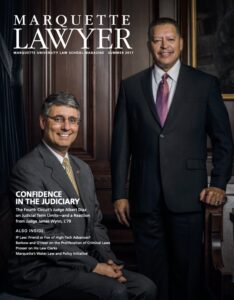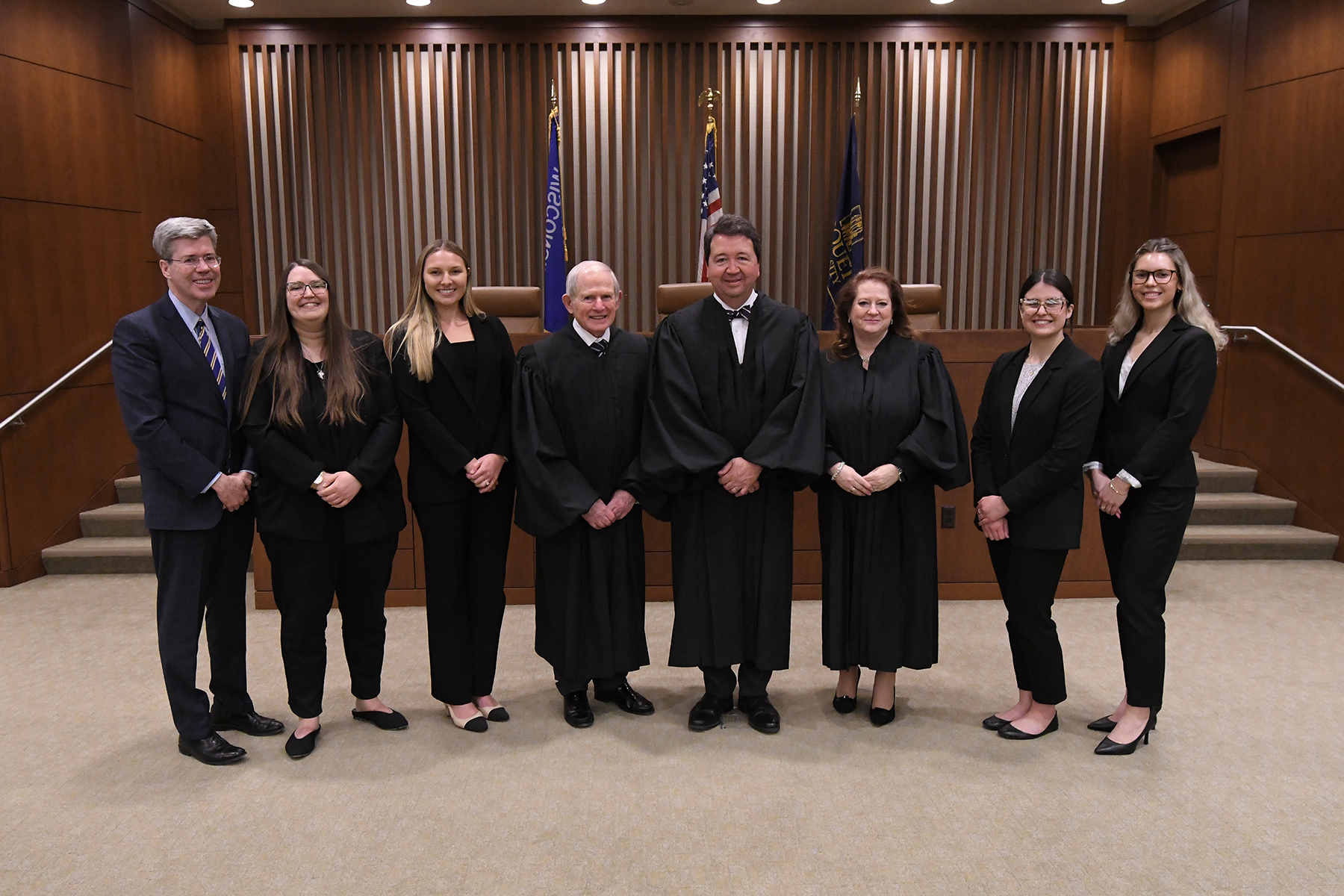Collecting Posts on the Office of Student Affairs and Announcing the 2024 Commencement Speaker
 My hope for the Law School early this semester in launching a series of weekly blog posts, one each on ten consecutive Mondays (save only spring break), was to provide some glimpses into our Office of Student Affairs—in important senses, the school’s “main office,” I explained. I may have wryly (which is not to say inaccurately) expressed a more personal hope of passing off some of the costs onto colleagues in that office, who as experts would write most of the entries. My success in the latter respect ensured success in the former.
My hope for the Law School early this semester in launching a series of weekly blog posts, one each on ten consecutive Mondays (save only spring break), was to provide some glimpses into our Office of Student Affairs—in important senses, the school’s “main office,” I explained. I may have wryly (which is not to say inaccurately) expressed a more personal hope of passing off some of the costs onto colleagues in that office, who as experts would write most of the entries. My success in the latter respect ensured success in the former.
Here is the collection, together with the authors:
- Some Glimpses into the Law School Office of Student Affairs (Jan. 29, 2024) by Joseph D. Kearney
- What We Hear (Feb. 5, 2024) by Anna Fodor
- Law School Alphabet Soup (Feb. 12, 2024) by Anna Fodor
- By the Students, For the Students (Feb. 19, 2024) by Sarah DiStefano
- The Students Behind the Marquette Law Mentorship Program (Feb. 26, 2024) by Joseph D. Kearney
- We All Work in Student Affairs (Mar. 4, 2024) by Anna Fodor
- Tips from a Law School Registrar (Mar. 18, 2024) by Nicole Toerpe Mason
- The Office of Student Affairs Presents Financial Wellness Week (Mar. 25, 2024) by Sarah DiStefano and Anna Fodor
- Behind the Pomp and Circumstance (April 1, 2024) by Sarah DiStefano
- One Final Glimpse into the Law School Office of Student Affairs (April 8, 2024) by Anna Fodor
This series will speak for itself—for some time, I would hope, as, like so much at the Law School, it is a mix of the new and the timeless. Besides providing the foregoing “table of contents,” and without doubting that Assistant Dean Anna Fodor was correct in post no. 10 to “conclude . . . with our annual welcoming of a new class,” my additional contribution here is to announce the Law School’s May 2024 graduation speaker.
The Hon. Albert Diaz, the chief judge of the United States Court of Appeals for the Fourth Circuit, will address our graduates, their families and friends, and the faculty, in our ceremony in the elegant Milwaukee Theatre (so much nicer a name for the elegant 1909 building than its new name, the Miller High Life Theatre). I am very grateful for Chief Judge Diaz’s upcoming visit to our community.
Perhaps initially persuaded by his colleague, the Hon. James A. Wynn, Jr., L’79, Judge Diaz has rather adopted us at Marquette University Law School. Whether he thought it an innocent enough matter to lead the panel presiding over the Jenkins Honors Moot Court Finals in 2015, Judge Diaz found himself back here, soon enough, delivering the Hallows Lecture in 2016. It has been a while since (blame the pandemic), but our current students may recognize him from walking past the framed cover of the Marquette Lawyer, which hangs on the wall of the second-floor corridor, overlooking the Zilber Forum, not far from (yes) the Office of Student Affairs. In all events, our graduates will benefit from Chief Judge Diaz’s remarks on the occasion of their sendoff from Marquette Law School.
Or should I say their welcome into the legal profession? To return to a theme from the series just concluded, it can be so hard to distinguish between endings and beginnings.

